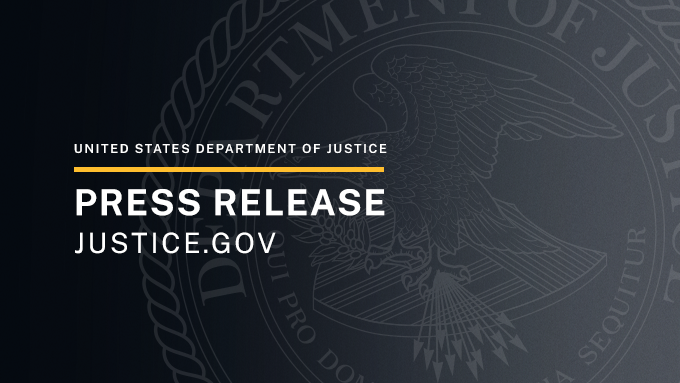LAS VEGAS – A Las Vegas, Nevada, woman has been charged in a 21-count superseding indictment for allegedly luring older men she met through online dating services and stealing their monies for her personal benefit.
Aurora Phelps, 43, with residences in Las Vegas and Guadalajara, Mexico, is charged with seven counts of wire fraud; three counts of mail fraud; six counts of bank fraud; three counts of identity theft; one count of kidnapping; and one count of kidnapping resulting in death. Phelps is currently in custody in Mexico.
According to allegations contained in the superseding indictment, from July 1, 2021, to December 9, 2022, Phelps would meet older men on dating websites or services, then meet them in-person. It was part of her scheme to drug the older men to gain unauthorized access to and steal money from their financial accounts to personally benefit herself and her family members.
The superseding indictment stems from a two-year investigation by the FBI Las Vegas Division. The superseding indictment was returned by a federal grand jury in September 2023.
Photo of defendant Aurora Phelps, from court document in United States of America v. Aurora Phelps, number 2:23-cr-0167-CDS-DJA, in U.S. District Court for the District of Nevada.
In romance scams, the scammer gains an unsuspecting individual’s affection and trust, then uses the illusion of a romantic or close relationship to manipulate and/or steal from the victim. These schemes not only cause significant financial losses, but also deeply impact the lives of victims.
If convicted on all counts, Phelps faces a maximum statutory penalty of life in prison.
The charges were announced by Acting United States Attorney Sue Fahami for the District of Nevada and Special Agent in Charge Spencer L. Evans for the FBI Las Vegas Division.
The investigation is a result of the close cooperation between the United States and Mexican authorities. The Justice Department’s Office of International Affairs is providing significant assistance in this case. Assistant United States Attorneys Daniel R. Schiess and Steven J. Rose are prosecuting the case.
An FBI website has been established seeking to identify potential victims. Any individuals who believe they or someone they know may have been victimized by Phelps or otherwise have information related to the case are encouraged to contact the FBI at 1-800-CALL-FBI or complete a survey via this website https://www.fbi.gov/how-we-can-help-you/victim-services/seeking-victim-information/seeking-victim-information-in-aurora-phelps-investigation.
If you or someone you know is age 60 or older and has experienced financial fraud, experienced professionals are standing by at the National Elder Fraud Hotline 1-833-FRAUD-11 (1-833-372-8311). This Justice Department hotline, managed by the Office for Victims of Crime, can provide personalized support to callers by assessing the needs of the victim and identifying relevant next steps. Case managers will identify appropriate reporting agencies, provide information to callers to assist them in reporting, connect callers directly with appropriate agencies, and provide resources and referrals, on a case-by-case basis. Reporting is the first step. Reporting can help authorities identify those who commit fraud and reporting certain financial losses due to fraud as soon as possible can increase the likelihood of recovering losses. The hotline is open Monday through Friday from 10:00 a.m. to 6:00 p.m. ET. English, Spanish and other languages are available.
More information about the department’s efforts to help older Americans is available at its Elder Justice Initiative webpage, which can be found at elderjustice.gov. For more information about the Consumer Protection Branch and its enforcement efforts, visit www.justice.gov/civil/consumer-protection-branch. Elder fraud complaints can be filed with the FTC at www.reportfraud.ftc.gov/ or at 877-FTC-HELP. The Justice Department provides a variety of resources relating to elder fraud victimization through its Office for Victims of Crime, at www.ovc.gov.
An indictment is merely an allegation. All defendants are presumed innocent until proven guilty beyond a reasonable doubt in a court of law.
###



